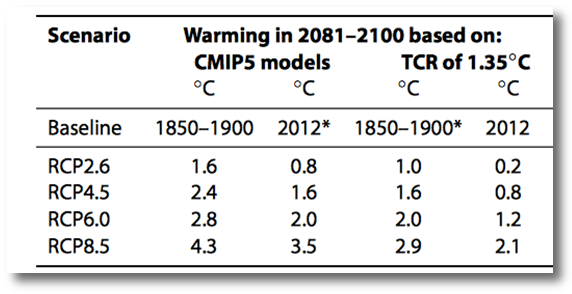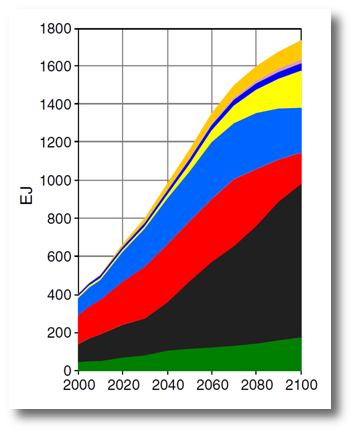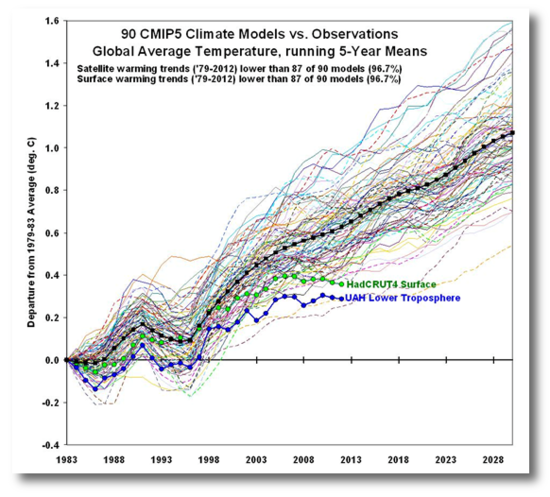 Bishop Hill
Bishop Hill Ridley's response to Lynas
This is a guest post by Matt Ridley and is a response to this post by Mark Lynas.
As far as I know Mark Lynas is an honourable man. He changed his mind on the benefits of genetically modified crops, going against the views of nearly all environmental campaign groups and bravely putting up with much criticism for doing so. I know how he feels, because I have done the same – changing my mind about the dangers of climate change, going against the views of nearly all environmental campaign groups and putting up with much criticism for doing so.
That Mark does not agree with my change of mind on climate (which happened gradually but was cemented by the way the green and scientific establishments reacted to the Climategate controversy) is fair enough. I don’t, however, understand why he chooses to take the low road in his attacks on me. His latest blog post is entitled “On Matt Ridley’s latest attempt at climate change denial”. He knows full well that I have never advocated climate change “denial” and that that very phrase was invented as a way smear sceptics who think the dangers of climate change are being exaggerated by associating them with holocaust denial. Yuk.
He then tweeted that I had “invented” numbers about climate sensitivity, when there were links in my piece to one of the peer-reviewed sources I had used. I asked him to withdraw the charge of “invention” three times on twitter and he has so far refused to do so. He did something similar a couple of years ago when attacking a piece I had written on wind power.
I am quite used to ad hominem attacks. I do not expect them from a fellow science writer and the winner of a book prize I was four times short-listed for. I have a rule that I do not go ad hominem, unless attacked myself. I always simply try to present arguments for or against a particular point of view.
And why does Mark feel the need to guess at and question my motives?
He makes the unpleasant insinuation that I come to my view backwards, that is to say that I am “against tackling global warming, and want to use the world’s poor as a moral justification for this”. He calls my view that climate change will probably not be dangerous this century “clearly intuitive”.
Well it’s not clear to me.
He produces not a shred of evidence for these entirely false and frankly nasty charges. I hereby ask him to withdraw them.
I question exaggerated claims about climate change when I think there is good evidence that they are questionable. I also question efforts to tackle global warming partly because I think they are hurting the poor, just as I think opposition to genetically modified crops is hurting the poor. Do I need any other motivation?
As to the substance of Mark’s article, let me take his points one by one.
He says that all the green groups he knows now oppose some biofuels. Well some now do – after years of criticizing people like me for opposing them – but not all by any means. Biofuel policies were driven by enthusiastic lobbying by green groups. I am delighted Mark and I agree on this and I look forward to him joining me in what has been a rather lonely fight against the burning of imported wood to generate electricity in the UK and other counterproductive schemes.
We also agree about the deaths of millions of people as a result of indoor air pollution thanks to the lack of electricity and gas.
Mark objects to my charge about the harms done by climate policies that “Greens think this harm is a price worth paying to stop the warming”, but he then goes on to make plain that he does think exactly this: “It is quite possible (maybe even probable) for global warming to both be extremely damaging and for near-term carbon emissions cuts to have a harmful effect on the world’s poor.” This could not be a clearer illustration of the claim I made.
So far, then, there is no disagreement at all, just some nasty and unsupported allegations about my motives.
Where we disagree profoundly is that Mark thinks I am wrong to have reached the conclusion that climate change is not likely to be harmful, let alone severely so, for many decades. He accuses me of “cherry-picking a couple of studies” to support this conclusion. Well, for the Times article in question I consulted three key papers, two of them peer reviewed journal articles, and the third a peer-reviewed report for the Global Warming Policy Foundation, written by a very good science writer and one of the scientists who co-authored the other two.
The first is by Lewis and Curry (2014) (further links and discussion here ), which takes the energy budget estimates from all the relevant data in the IPCC’s 5th Assessment Report (AR5) to arrive at a conclusion that the best estimate of transient climate response is 1.33 degrees. (Like Lewis and others, I take TCR as the most policy-relevant measure of sensitivity. Equilibrium sensitivity – ECS – is a measure of eventual temperature after a much longer period or adjustment.)
The other paper I consulted was Otto et al (2013), which was authored by a large group of prominent IPCC lead authors. They reached the conclusion that TCR is 1.3 degrees.
The third paper I consulted was the very clear and comprehensive review written by Lewis and Crok (2013). They gave a very slightly higher estimate of TCR of 1.35C. They helpfully provide a chart to show how much warming was expected to result from such a TCR:

You can see from this where I got the estimate of 0.8-1.2 degrees of warming (from today) by the later part of this century in the two middle scenarios. I checked it with Nic Lewis before publishing.
So I was entirely correct in my claim that -- using the best evidence – you get very modest warming in the two middle scenarios.
However, Mark has two further objections. First, that I was wrong to reject the IPCC’s own out of date estimates of 21st century warming. Well, actually, here I used a form of words that was a bit hard on my own case. Not only are Lewis and Curry’s estimates based on AR5’s results, the fact is that there was no AR5 best estimate. Astonishingly, AR5 does not actually give a central estimate of climate sensitivity at all. This omission of a key parameter was explained by the substantial discrepancy between the low observation-based estimates and the high estimates derived from climate models. Nor does AR5 give a best estimate of TCR. If we take the models instead, then (see the table above) we still get only moderately harmful warming in the two middle scenarios: 1.6-2.0C from today (2.4-2.8C from pre-industrial.)
Ah, but why did I leave out the RCP8.5 scenario? Mark argues I was wrong to do so on the grounds that CO2 emissions are rising as fast if not faster than in that scenario. Yes, but emissions are not the only factor in how much warming happens. It is CO2 levels, not emissions, that count. Just because emissions are following what RCP8.5 assumes, it doesn't mean concentrations are. RCP8.5 assumes changes in carbon cycle feedbacks for which there is precious little evidence. The latest studies refute its assumption that the oceans and biosphere have slowed in their ability to absorb CO2. For example, Gloor et al say: “Claims for a decreasing long-term trend in the carbon sink efficiency over the last few decades are currently not supported by atmospheric CO2 data and anthropogenic emissions estimates.”
Other factors include methane and other non-CO2 emissions, which are rising much more slowly than the scenario assumes. Plus RCP8.5 depends on economic assumptions that are, I submit highly unrealistic: 12 billion people, 10 times as much coal use as today, very little trade leading to low energy efficiency, and so forth. (But still the world is three times richer in income per head.)
Here’s a description by Dave Rutledge of RCP8.5:
Coal accounts for half of future carbon-dioxide emissions through 2100, and two-thirds of the emissions through 2500. The IPCC’s coal burn is enormous, twice the world reserves by 2100, and seven times reserves by 2500. Coal so dominates that it is not an exaggeration to say that the IPCC and climate-change research programs depend on this massive coal burn for their existence. Without the threat of coal, the IPCC could close up shop and the research program funding would drop to a small fraction of what is spent on research in weather forecasting.
In the chart below, black is coal in RCP 8.5, red is oil and blue is gas. Ask yourself if you think this is at all plausible. I don’t.

Most journalists do not report the extreme economic and energy-mix assumptions behind extreme temperature projections.
Anyhow, let me take Mark’s suggestion and put the RCP8.5 scenario back into the mix. Under the best TCR estimate, see above, we would still only have 2.1 degrees of warming from today, 2.9 from pre-industrial. Under the models’ TCR we would have 3.5 degrees. Well, even I agree that that’s going to do harm (though I find it odd that the IPCC and others insist on an amount of warming, rather than a rate of warming, that’s dangerous, but leave that aside). Does even that harm – experienced by rich people in the future – justify the pain we are inflicting on the poor today with climate policies? I am not sure it does, even before you examine the plausibility of the assumptions.
My point is that if you make heroically bad economic, demographic, carbon-cycle and energy-mix assumptions, AND you ignore the best evidence available about sensitivity then yes, warming might be very dangerous. In all other circumstances, warming is slow and mild, or possibly turning dangerous in the time of our grandchildren. That’s precisely what I said in my article.
Does Mark think dangerous warming is inevitable? I doubt it. Does he think he can rule out non-dangerous warming? I hope not. It would require cherry-picking to achieve that. The IPCC gives a range of outcomes from harmless to harmful. I think the lower end of the range is more plausible. Mark thinks the higher end is more plausible. But we are both within the range of outcomes. How does that make me a “denier”?
Let me add three final points.
First, Mark simply ignores my argument that climate change policies are regressive, taking money disproportionately from poor people and handing it disproportionately to rich people. There are plenty of climate policies that would not do this, and that I think would do a better job of getting emissions down, such as spending a lot more on new nuclear and solar and gas research and development. Being a landowner myself, this would remove some very lucrative potential options for me (all of which I currently refuse, but if I fall on hard times…) – to build wind farms, install solar panels, grow biofuels, install subsidized wood based heating systems, grow crops for subsidized anaerobic digesters. But I am happy to argue against these policies because I care about what they are doing to poor people and the environment.
Second, does the slow progress of climate change, compared with model predictions, not give Mark even the slightest doubts about high sensitivity? In the past 35 years (the satellite era), warming has happened much slower than predicted by the models and it has slowed down, rather than accelerating. Remember that TCR of 1.35C is higher than pure greenhouse physics for CO2: it implies some very small positive feedbacks. So it’s the full greenhouse effect of CO2 and a bit more. Twenty-six years ago when I first wrote about climate change I was happy to accept predictions of sensitivity being 3C or so. Today, with so much less warming than predicted, I have been forced to change my mind. Why is Mark so confident that the slow warming of the last 35 years is an aberration and that a sudden acceleration is just around the corner?
Third, I do wish Mark and people like him would at least discuss the evidence on global greening: the satellite evidence for a roughly 14% increase in green vegetation and the evidence that this is caused to a significant extent by extra CO2. This leads to huge benefits: higher yields, less land needed for farming, more productive and diverse natural ecosystems. Whenever I write about this, my critics just ignore it. Do they just hate admitting that CO2 emissions might have an upside?
Mark Lynas and I agree on a lot. We disagree on how dangerous warming looks likely to be. Let’s do so politely please.




Reader Comments (58)
Attp also has an attack on Matt but without the name calling. Matt, have you thought about responding or is it small potatoes?
It would be in one ear, rattle around without having the danger of hitting anything and then straight out the other ear with attp
Regards
Mailman
Speaking of (former cream-pie thrower) Mark Lynas ...
Your Grace, a little over three years ago, I believe that you (or someone) sent him a complimentary copy of The Hockey Stick Illusion.
The results of my searches [hockey-stick, hockey, illusion] on his site today have yielded zip, nada, zilch. So, I was wondering ... do you happen to know if Lynas actually read your book - and, if so, what his response was?!
Then again, perhaps Lynas took too much to heart Judith Curry's observation (which you had cited in the above post) that:
*My brief visit to RC today shows that Lynas (along with such luminaries as DeSmog and Stoat, for example) holds a place under "Other Opinions". Amazing, eh?!
Ooops ... my mistake ... I had written:
Unfortunately, it would appear that searching Lynas' blog yields results only from posts, not from comments. For the record, in http://www.marklynas.org/2011/06/new-ipcc-error-renewables-report-conclusion-was-dictated-by-greenpeace/#comment-1716, Lynas wrote:
And, to be fair, in a subsequent comment (responding to Barry Woods), Lynas subsequently wrote:
I haven't read all 288 comments in the thread; however, not one of the 18 instances of "hockey" gives any indication as to whether or not Lynas actually did read the copy he presumably received.
Matt Ridley was blessed not only with the biggest right wing landslide in generations in a hotly climate alarmist election, but also an Inatalanch from blogfather Glenn Reynolds:
pjmedia.com/instapundit/197926/
“NOVEMBER 7, 2014
TOOLS OF THE OLIGARCHS: Matt Ridley exposes how environmentalists take the moral low ground and defend the rich against the poor. It’s always been that way. The modern environmental movement got its start when some rich landowners organized to block the (environmentally friendly) Storm King pumped-storage plant because they were afraid it would hurt their views.”
It is getting harder and harder to police the alarmist policy of condemning CO2, when there are scientist who openly suggest (in a respected peer reviewed journal) that CO2 might have to be used to counteract major Pinatubo-like volcanic eruptions in the future:
http://onlinelibrary.wiley.com/doi/10.1002/2014GL061886/abstract
The research was widely presented in a interview by the biggest Norwegian newspaper Aftenposten: http://www.aftenposten.no/nyheter/iriks/Forskere-Kanskje-ma-vi-oke-drivhuseffekten-med-vilje-7773748.html
There is something weird about the final figure in your article that compares models to observations. Everything seems to be misaligned.
The comparison between Hadcrut and UAH data appears to be wrong (probably a base-line error). Also the model output seems to be shifted upward by as much as 0.3C in relation to the observational data.
It's almost as though someone has taken advantage of the relatively large yearly fluctuations and then deceptively aligned the model output to a high peak in the observational data instead of aligning to a proper base line.
Why would someone do that?...
I grew up on the Arkansas border of South Missouri. I remember the hot dry summers With trucks and wagons hauling water from 10 or more miles. I find it hard to think of the effect of average temperature change of a fraction of a degree on the different parts of the globe. Would not some regions gain from this and some perhaps lose
Would fewer New Yorkers go to Florida for the winter or just what is it we are talking about?